
About This Quiz
The Sermon on the Mount, which appears in Matthew, chapters 5-7, contains the basic teachings of Christianity as laid out by Jesus himself. This sermon is the longest uninterrupted speech by Jesus in the Bible and includes many of his most famous sayings. If you've read quotes from Jesus in other sources, odds are good they're from the Sermon on the Mount.
So what are the basic components of this well-known sermon? Jesus starts with the Beatitudes, a series of blessings for people who demonstrate the qualities desired by God: meekness, merciful, pure in heart and so on. He then explains how he has come to fulfill the law, which is the law that Moses gave the Jews in the Old Testament. Jesus also spends a good deal of time noting the difference between those who perform good works for attention and praise and those who do them with sincerity and humbleness. Guess which is better!
For centuries, theologians and religious leaders like Saint Augustine have studied the Sermon on the Mount as the basis of Christian ethics. In other words, Jesus tells his followers exactly how they should live a good life according to God's will in this sermon. See how much of the Sermon of the Mount you remember. If you do well, rejoice and be glad and tell all your friends!

Jesus' Sermon on the Mount appears in Matthew chapters 5-7. The sermon is Jesus' longest speech on record and lays out the basic tenets of Christian belief that are still followed today.

The Beatitudes are eight blessings that Jesus lists at the beginning of the Sermon on the Mount. Each Beatitude starts with "Blessed are..." and describes people who will find happiness through God.

Matthew 5:5 states, "Blessed are the meek, for they shall inherit the earth." With this Beatitude, Jesus turns people's expectations on their head by asserting that the quiet, submissive ones will have power.
Advertisement

According to Matthew 5:17, Jesus has come to fulfill the law, not destroy it. This verse is one of the most debated in the Bible because it suggests a relationship between the Old Testament and the New.

In Jesus' time, "raca" was an insult meaning "worthless." Jesus says that people who kill shall face judgment, but so will people who express anger to their brother without just cause.

Jesus counters the idea that people should love their friends and hate their enemies. Instead, he tells his followers to love and pray for those who wrong them. After all, anyone can love only their friends.
Advertisement

In Matthew 5:38-39, Jesus argues against seeking retribution for being wronged. Instead of "an eye for an eye and a tooth for a tooth," Jesus tells people to turn the other cheek when insulted.

The Beatitudes name the groups of people, normally thought to be unfortunate ones, who are actually blessed, or happy. For instance, those who mourn will be comforted, and the meek shall gain the earth.

In this verse, Jesus uses a metaphor, calling people the salt of the earth. However, if the salt loses its flavor, it's useless and gets thrown out. Today, "salt of the earth" is a common expression.
Advertisement

In Matthew 5:29-30, Jesus says that a person should pull out their eye if it causes them to sin, rather than have their whole body sent to hell. The verses are harsh but meant to save people from sin.
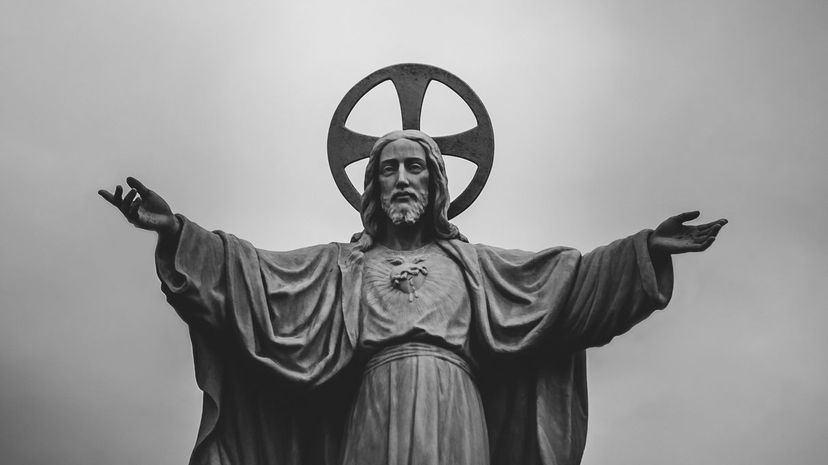
According to Luke 3:23, Jesus was around 30 when he started his ministry. Because the Sermon on the Mount occurred early in his ministry, soon after his baptism, we can assume he was about 30.

In Matthew 6:1-4, Jesus criticizes the hypocrites who blow trumpets to call attention to their almsgiving. They give to the needy in a showy manner to gain attention, honor and praise.
Advertisement

Jesus says that people who pray in a showy manner are seeking the "reward" of other people's respect. He says that people should instead pray in private, and God will reward them.

In Matthew 6:9-13, Jesus tells people how to pray the Lord's Prayer, one of the best-known prayers in Christianity. It starts by addressing God as a heavenly father and saying that his name is holy.
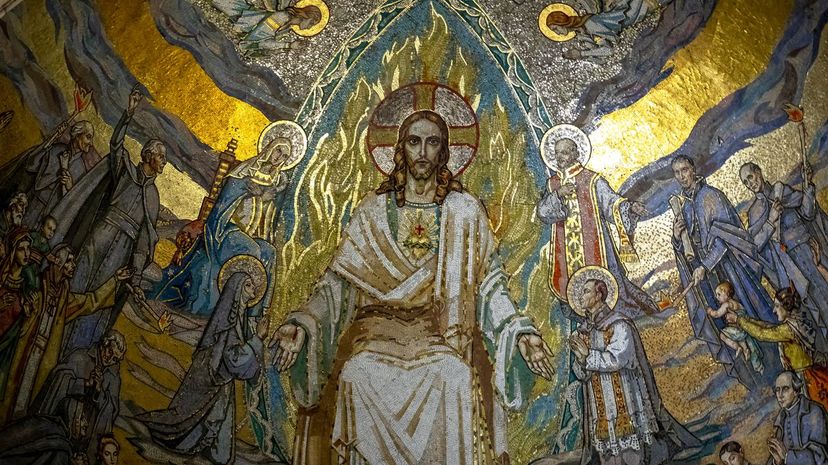
Matthew 5:1 states that when Jesus saw a multitude of people following him, he went up into a mountain to begin preaching. Thus, his sermon got its famous name, the Sermon on the Mount.
Advertisement

After reciting the Lord's Prayer, Jesus stresses the idea that people must forgive others if they expect God to forgive them. And he warns that those who don't forgive others won't be forgiven either.

Jesus tells people to worry more about worshiping God than hoarding treasures on earth. He warns that people can't focus on serving the "master" of money and also give God his just due.
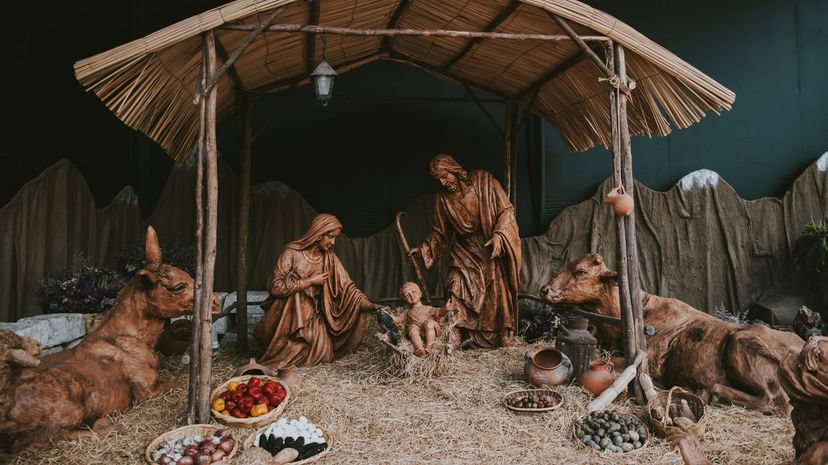
"Stop worrying so much" is the message Jesus tries to impart in Matthew 6:25-34. Birds don't worry about growing or harvesting food the way people do, yet God feeds them. And he'll take care of people, too.
Advertisement

Jesus tells people not to worry so much about what to wear. After all, flowers in the field don't worry about clothes and they are "dressed" in more splendor than King Solomon ever was.

Jesus teaches his listeners the Our Father, or the Lord's Prayer, during the Sermon on the Mount. Jesus says it's not necessary to "babble like pagans," but better to pray with these words.

Luke 6 contains the Sermon on the Plain, which is similar in content to the Sermon on the Mount but much shorter. Bible scholars debate whether they were different accounts of the same event.
Advertisement

Instead of looking solemn and miserable when fasting, like the hypocrites do, Jesus says people should keep their fasting a private manner. By being discreet, they will receive their reward from God.

In Matthew 6:22, Jesus states that "The eye is the lamp of the body." Some readers interpret this verse to mean that the eye, or one's conscience, guides people through the darkness.

Throughout the Sermon on the Mount, Jesus preaches against hypocrisy. Here, he uses hyperbole to make the point that people should focus on their own flaws instead of always pointing out other people's.
Advertisement

In Jesus' society, pigs were considered unclean animals. Thus, throwing valuable pearls to the pigs would be unheard of. Bible scholars have come up with multiple interpretations of this puzzling metaphor.

Everyone seems to take the wide gate because it's much easier. This verse implies that the wide gate leads to sin and destruction, whereas the narrow gate leads to eternal life. That one's harder to find!

Every child hears the Golden Rule at least once while growing up because it's a simple rule to live by. Versions of these words have also appeared in other religious and philosophical writings.
Advertisement

Jesus says that no one in their right mind would give their kid a stone instead of bread, or a snake instead of a fish. In the same way, God will provide what people need, if they only ask.

False prophets are like wolves in sheep's clothing, says Jesus. He then advises that people can recognize false prophets by their fruit. Just as a bad tree bears bad fruit, so does a false prophet.

At the end of the sermon, Jesus says people who put his teachings into practice are wise, like people who build their homes on rock. That's because a house on a strong foundation can withstand rain and wind.
Advertisement

According to Matthew 7:28-29, the crowds are amazed after hearing Jesus' sermon because of the way he spoke with authority. The Bible makes it clear that people had never heard such a speaker.

All you have to do is ask. That's the message that Jesus imparts in Matthew 7:7-8. He reassures his listeners that God is like a father who wants the best for his children, so they should not hesitate to ask.
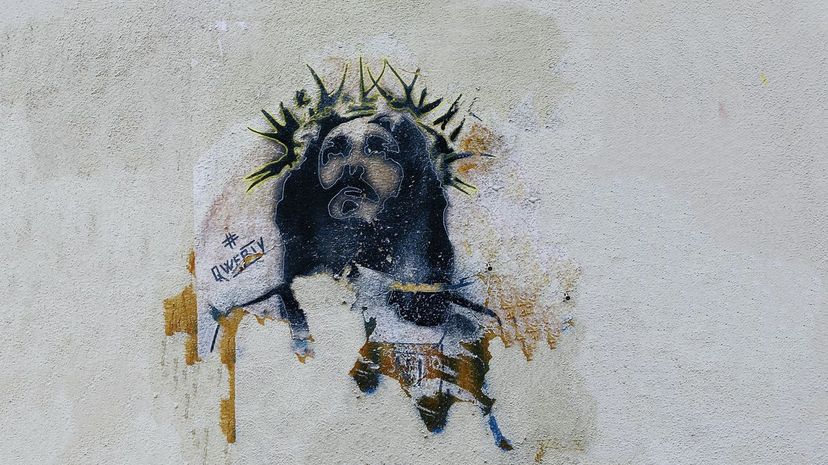
Jesus gives a stern warning here that not everyone who calls out to him at the last judgment will enter the kingdom of heaven. He says that people have to follow the will of the Father.
Advertisement

The hypocrites give to the needy with great ostentation, says Jesus, because they want their reward on earth. But God will reward the people who give discreetly, with one hand not knowing what the other one's doing.

The Lord's Prayer ends with a plea for God to save the speaker from evil or the evil one. In fact, some scholars debate whether the prayer originally said evil itself, or the evil one, which is Satan.

People shouldn't save up treasures on earth, because moths and vermin can get to them. Jesus is speaking metaphorically here, emphasizing that people should seek treasures in heaven by following God's word.
Advertisement

This quote by Jesus is from John 10:11, not the Sermon on the Mount. In this verse, Jesus also calls himself the good shepherd, who gives his life for his sheep. Hmm, sounds familiar....
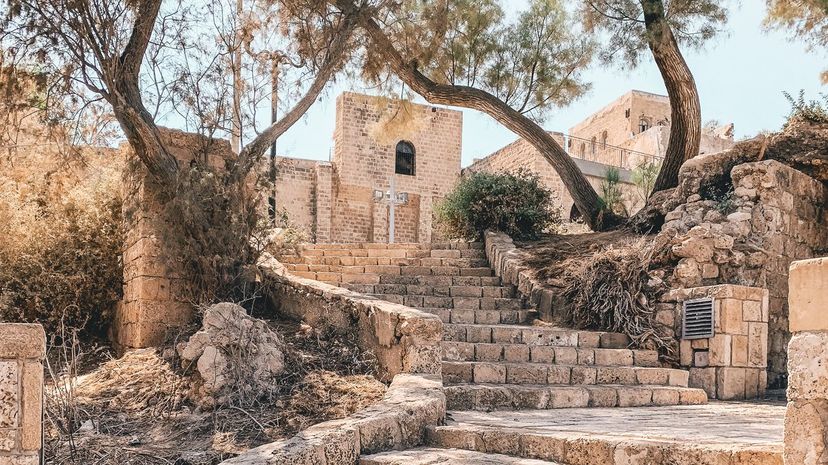
According to Matthew 4:23, Jesus spends time in Galilee preaching and healing the sick. His ministry attracts great crowds from all over the neighboring lands, which leads him to go up the mountain.

One of the Beatitudes is "Blessed are the peacemakers, for they will be called children of God." One of the elements of Jesus' teachings that attracts a lot of followers is his message of peace.
Advertisement

Jesus warns that being angry with a brother or sister is as serious a sin as murder. Therefore, people should reconcile with their friends and family before offering a gift to God.